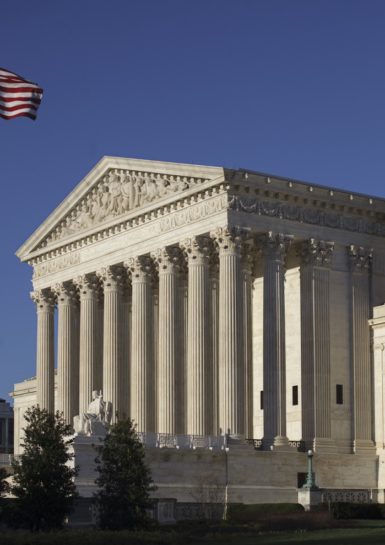
SCOTUS Provides Mixed Ruling on Travel Ban
The Supreme Court of the United States gave a mixed ruling on the Trump Travel ban earlier today that gave parties on both sides good and bad news. SCOTUS ruled that visas can be issued to those with “bonafide relationships” to US citizens. Bonafide relationships consist of marriage, engagements, job offers, attending school among others. Documentation on the engagements and marriages will receive higher levels of scrutiny.
Earlier today the Supreme Court issued a mixed ruling on the two lower court injunctions staying implementation of President Donald Trump’s executive order barring citizens of six majority-Muslim nations from entering the United States for 90 days. Two federal appellate courts had issued preliminary injunctions against the order: the Fourth Circuit because it concluded that the order was likely motivated by unconstitutional discrimination against Muslims; the Ninth Circuit because the president had exceeded the statutory authority granted to him by Congress.
Today’s Supreme Court ruling is a mixed bag. It offers something to both sides, while also giving both some potentially bad news. The Court has decided to hold oral argument on the two rulings during its October term. The two lower court rulings will be combined into a single case for review by the Supreme Court. In the meantime, it lifts parts of the preliminary injunctions issued by the lower courts, but leaves the rest in place. Specifically, it maintains the injunctions with respect to entry by “foreign nationals who have a credible claim of a bona fide relationship with a person or entity in the United States.” The Court provides a brief explanation of what counts as a “bona fide relationship”:
For individuals, a close familial relationship is required. A foreign national who wishes to enter the United States to live with or visit a family member, like Doe’s wife or Dr. Elshikh’s mother-in-law, clearly has such a relationship. As for entities, the relationship must be formal, documented, and formed in the ordinary course, rather than for the purpose of evading [the executive order]. The students from the designated countries who have been admitted to the University of Hawaii have such a relationship with an American entity. So too would a worker who accepted an offer of employment from an American company or a lecturer invited to address an American audience. Not so someone who enters into a relationship simply to avoid §2(c) [of the order]: For example, a nonprofit group devoted to immigration issues may not contact foreign nationals from the designated countries, add them to client lists, and then secure their entry by claiming injury from their exclusion.
The Court offers very little justification for this distinction between aliens with a “bona fide relationship” to the US and those without one. It notes only that denying entry to foreign nationals without a “bona fide” relationship does not burden any Americans, and that “unadmitted and nonresident alien[s]… ha[ve] no constitutional right of entry to this country.”
It is true that aliens in the second category do not have a “constitutional right” to enter the US. But the same is true of those with such a relationship, but no residency permit or visa. The point of the lower court rulings against the ban is that the government is forbidden to exceed its authority or to engage in unconstitutional discrimination even against people without such a right. This is a standard principle of constitutional law: when the government is barred from engaging in in some form of discrimination, the restriction applies even to the distribution of government benefits and privileges that are not themselves constitutional rights. For example, no one has a constitutional right to receive Social Security benefits. But it would surely be unconstitutional for Congress to enact a law under which Social Security benefits are available to Christians or Jews, but not adherents of other religions.
Steve
Steve is an affordable multifamily housing professional that is also the co-founder of Whiskey Congress. Steve has written for national publications such as The National Marijuana News and other outlets as a guest blogger on topics covering sports, politics, and cannabis. Steve loves whiskey, cigars, and uses powerlifting as an outlet to deal with the fact that no one listens to his brilliant ideas.



